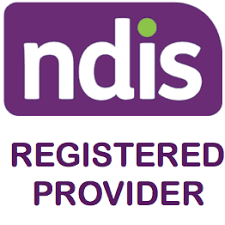Apps
Defining repetitive questioning
Repetitive questioning behaviour is when a child asks the same question repeatedly.
Repetitive questioning as a part of normal development
As adults, we play a vital role in our child’s learning. Answering our children’s questions and providing explanations help children understand how the world works, how to make predictions and learn how to handle situations effectively, and repeating the information helps children consolidate and retain it.
Even if children have specific knowledge, it’s normal for them to still ask the same question from time to time to alleviate worry, doubt or fear.
Repetitive questioning behaviour of concern
Some children ask the same questions so many times that it becomes excessive. Questioning can be repetitively asking about an activity (e.g. Do I have to go swimming?), time (e.g. When are we having lunch?), person (e.g. Is Simona coming today?), place (e.g. Can I sit in the front seat of the car?) or transport (e.g. Are we going to miss the train?).
It is important to note that repetitive questioning behaviour exists for a variety of reasons, and is particularly prominent in children with anxiety, Obsessive-compulsive disorder, traumatic brain injury, Autism spectrum disorder, Smith-Magenis syndrome, Fragile X syndrome and Prader Willi syndrome.
Impact of repetitive questioning
Most children and adults try to stay as patient as possible but at times they may feel tired of answering the questions and in exasperation, snap and say something like, ‘I have already told you the answer a hundred times’, ‘We just talked about this two minutes ago’ or ‘Why do you keep asking me when you already know the answer.’ However, these responses only seem to increase the child’s stress and the situation worsens.
When a child begins to persistently exhibit repetitive questioning behaviour, the climate of the context (e.g. childcare, early childhood, primary and secondary school, disability support and youth services) can change dramatically. A considerable amount of time and energy can be spent on the child showing the repetitive questioning behaviour, which can have a deleterious effect on the quality of the learning experience for all the children. Research consistently shows that managing behaviour is linked to staff experiencing high levels of stress, burnout, and job dissatisfaction.
Repetitive questioning affects everyone involved and the child who is asking questions repetitively requires necessary help to learn positive ways of behaving and managing their emotions.
Positive support resources for repetitive questioning

Positive Behaviour Support (PBS) focuses on evidence-based strategies and person-centred supports that address the needs of the individual and the underrepetitive questioning causes of the behaviours of concern, to enhance the quality of life for both the individual and those that support them.
PBS recognises that there is no single cause for repetitive questioning behaviour . It is a complex that is a product of the interaction between multiple factors contributing to its development and persistence.
Repetitive questioning behaviour is like the tip of the iceberg so it is essential to look beneath the surface to work out the why before we can address the problem. Behaviour Help resources are at hand such as Behaviour Help App and R for Repetitive Questioning Behaviour: Positive Behaviour Support .
Behaviour Help App for Repetitive Questioning
Behaviour Help App provides a structured approach to assessing, managing and preventing repetitive questioning behaviour.
Assess
Use the Behaviour Help App to record how often repetitive questioning occurs. This will help identify patterns, such as specific times of day, situations, or triggers that lead to increased questioning. Also, by documenting the context in which the repetitive questioning happens it will help give insight into the environment, who is present, and what activity is taking place. This can provide insights into possible triggers or underlying causes.
Manage
Based on the data, develop behaviour management strategies to effectively respond to repetitive questioning. For instance, using a calm, consistent answer each time or referring to a visual with the responses may reduce the need for repetition.
Use the behaviour help app to track the effectiveness of recommended behaviour management strategies to repetitive questioning. If the frequency of repetitive questioning decreases, it indicates that the strategies are working. If there is little or no improvement, use the app to adjust strategies based on new data. Continuous monitoring allows for a dynamic approach to data driven behaviour management.
Prevent
Based on the data, develop behaviour prevention strategies to address the underlying causes of repetitive questioning. This might include providing more structured routines, using visual supports, or offering reassurance before the person begins to ask questions repetitively.
The app can be used to track progress in teaching the individual alternative ways to express their needs or concerns, such as using a communication aid or a specific phrase that acknowledges their anxiety. Continuous monitoring allows for a dynamic approach to data driven behaviour prevention.
Get Started with Behaviour Help App
Assess-manage-prevent behaviours of concern efficiently and effectively with the Behaviour Help App.
Download this free PDF guide
The forms contained in this pdf booklet are from the R for Repetitive Questioning: Positive Behaviour Support guide that can be used as part of the process of developing a PBS plan.
Get Started with Behaviour Help App
Assess-manage-prevent behaviours of concern efficiently and effectively with the Behaviour Help App.

